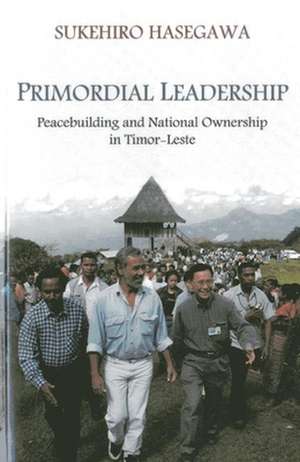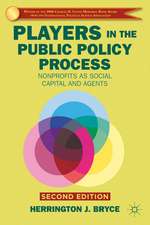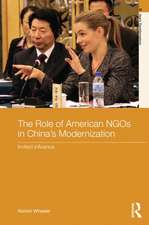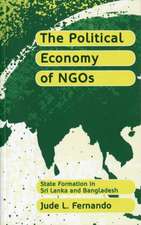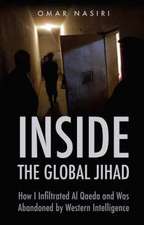Primordial Leadership: Peacebuilding and National Ownership in Timor-Leste
Autor Sukehiro Hasegawaen Limba Engleză Paperback – 16 sep 2013
After decades under the authoritarian rule of Indonesia, the new nation of Timor-Leste was wracked by conflict early in the twenty-first century. This book reveals how primordial leadership proved to be the key to building sustainable peace in this young Southeast Asian country.
Rather than relying solely on governmental rules and regulations to bring order to the country, its leaders appealed to the citizens' strong emotional ties to the homeland and their sense of national unity. This primordial leadership in post-conflict Timor-Leste facilitated a widespread feeling of ownership and accountability, helping the country's leaders successfully turn security crises in 2006 and 2008 into opportunities for fostering respect for democratic governance. This change in mindset and the ensuing spirit of national unity were instrumental in achieving peace and stability—more than the externally induced, exclusive efforts in building institutional frameworks for the rule of law and democratic governance.
While the application of democratic principles is necessary in the long term, it alone is not sufficient for building sustainable peace in an immediate post-conflict period. The leadership of Timor-Leste was committed to national interest, identity, and unity; it was able to harmonize the universal ideals and principles of governance with local community values and customs. It had the passion and courage to empower others, the willingness to pursue the future rather than the past, and the capability to transform the mind-set and mentality of people. Without those characteristics, success would have been very much in doubt.
Rather than relying solely on governmental rules and regulations to bring order to the country, its leaders appealed to the citizens' strong emotional ties to the homeland and their sense of national unity. This primordial leadership in post-conflict Timor-Leste facilitated a widespread feeling of ownership and accountability, helping the country's leaders successfully turn security crises in 2006 and 2008 into opportunities for fostering respect for democratic governance. This change in mindset and the ensuing spirit of national unity were instrumental in achieving peace and stability—more than the externally induced, exclusive efforts in building institutional frameworks for the rule of law and democratic governance.
While the application of democratic principles is necessary in the long term, it alone is not sufficient for building sustainable peace in an immediate post-conflict period. The leadership of Timor-Leste was committed to national interest, identity, and unity; it was able to harmonize the universal ideals and principles of governance with local community values and customs. It had the passion and courage to empower others, the willingness to pursue the future rather than the past, and the capability to transform the mind-set and mentality of people. Without those characteristics, success would have been very much in doubt.
Preț: 306.38 lei
Nou
Puncte Express: 460
Preț estimativ în valută:
58.62€ • 61.21$ • 48.41£
58.62€ • 61.21$ • 48.41£
Carte tipărită la comandă
Livrare economică 15-29 aprilie
Preluare comenzi: 021 569.72.76
Specificații
ISBN-13: 9789280812244
ISBN-10: 9280812246
Pagini: 392
Dimensiuni: 152 x 229 x 18 mm
Greutate: 0.45 kg
Ediția:New.
Editura: Brookings Institution Press
Colecția United Nations University Press
ISBN-10: 9280812246
Pagini: 392
Dimensiuni: 152 x 229 x 18 mm
Greutate: 0.45 kg
Ediția:New.
Editura: Brookings Institution Press
Colecția United Nations University Press
Notă biografică
Sukehiro Hasegawa is former special representative of the UN Secretary-General for Timor-Leste (2004–2006) and professor of global politics in the faculty of law, Hosei University (2007–2013). He is currently a visiting professor of Hosei University and United Nations University
Descriere
After decades under the authoritarian rule of Indonesia, the new nation of Timor-Leste was wracked by conflict early in the twenty-first century. This book reveals how primordial leadership proved to be the key to building sustainable peace in this young Southeast Asian country.
Rather than relying solely on governmental rules and regulations to bring order to the country, its leaders appealed to the citizens' strong emotional ties to the homeland and their sense of national unity. This primordial leadership in post-conflict Timor-Leste facilitated a widespread feeling of ownership and accountability, helping the country's leaders successfully turn security crises in 2006 and 2008 into opportunities for fostering respect for democratic governance. This change in mindset and the ensuing spirit of national unity were instrumental in achieving peace and stability—more than the externally induced, exclusive efforts in building institutional frameworks for the rule of law and democratic governance.
While the application of democratic principles is necessary in the long term, it alone is not sufficient for building sustainable peace in an immediate post-conflict period. The leadership of Timor-Leste was committed to national interest, identity, and unity; it was able to harmonize the universal ideals and principles of governance with local community values and customs. It had the passion and courage to empower others, the willingness to pursue the future rather than the past, and the capability to transform the mind-set and mentality of people. Without those characteristics, success would have been very much in doubt.
Rather than relying solely on governmental rules and regulations to bring order to the country, its leaders appealed to the citizens' strong emotional ties to the homeland and their sense of national unity. This primordial leadership in post-conflict Timor-Leste facilitated a widespread feeling of ownership and accountability, helping the country's leaders successfully turn security crises in 2006 and 2008 into opportunities for fostering respect for democratic governance. This change in mindset and the ensuing spirit of national unity were instrumental in achieving peace and stability—more than the externally induced, exclusive efforts in building institutional frameworks for the rule of law and democratic governance.
While the application of democratic principles is necessary in the long term, it alone is not sufficient for building sustainable peace in an immediate post-conflict period. The leadership of Timor-Leste was committed to national interest, identity, and unity; it was able to harmonize the universal ideals and principles of governance with local community values and customs. It had the passion and courage to empower others, the willingness to pursue the future rather than the past, and the capability to transform the mind-set and mentality of people. Without those characteristics, success would have been very much in doubt.
